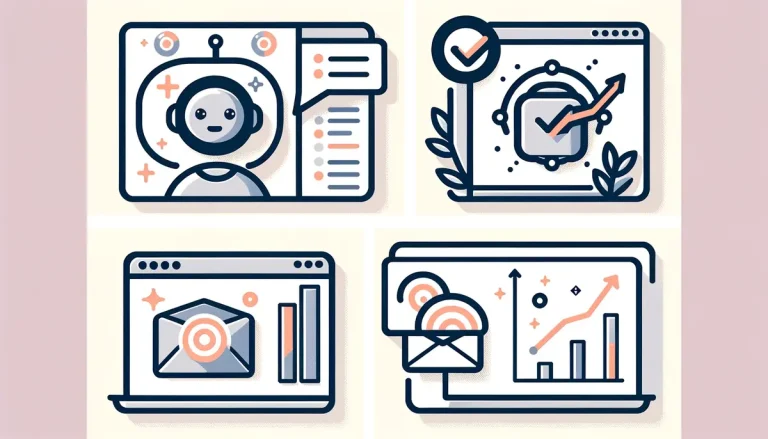In today’s fast-paced sales environment, efficiency is everything. Sales professionals aren’t just competing with each other; they’re competing with time itself. Whether it’s nurturing a lead, organizing client information, or closing that all-important deal, every second counts. That’s why sales apps have become indispensable tools for modern sales teams.
These apps streamline tasks, improve productivity, and empower salespeople to do what they do best—sell! In this article, we’ll dive deep into the top five sales apps that can help you close deals more efficiently and boost your overall productivity.
Why Sales Apps are Essential for Today’s Sales Teams?
In a world where remote work is common and customer expectations are high, sales apps have revolutionized the way sales teams operate. No longer confined to desktop or paper-based systems, sales reps can now manage their entire workflow from a smartphone or tablet.
Sales apps help streamline administrative tasks, manage customer data, and support real-time communication, which ultimately enhances the customer experience. Imagine a situation where you can pull up a client’s profile, access the sales pipeline, schedule follow-ups, and communicate with your team—all on the go. This flexibility is critical in ensuring that sales reps can focus on relationship-building and closing deals without getting bogged down by logistics.
Top Sales Apps for Closing Deals Faster
With hundreds of options available, choosing the right sales app can be overwhelming. Each app on this list brings unique features to the table, tailored to different aspects of the sales process. Let’s take a closer look at these top five picks and explore how they help in closing deals faster.
1. Salesforce Sales Cloud
Salesforce Sales Cloud is arguably the most comprehensive CRM platform for sales teams. Known for its robust CRM capabilities, Salesforce Sales Cloud provides a 360-degree view of customer interactions and insights that salespeople can use to engage more effectively.
This app lets you track leads, opportunities, and client interactions in a centralized dashboard. Its AI-powered Einstein Analytics feature analyzes historical data and predicts the likelihood of closing deals, enabling reps to prioritize leads that are more likely to convert. Salesforce also integrates seamlessly with other tools via AppExchange, allowing you to customize the platform to fit your specific sales needs.
Salesforce Sales Cloud is ideal for businesses of all sizes that need detailed customer management, predictive analytics, and a flexible app marketplace. It simplifies the sales process, enabling teams to make informed decisions and close deals faster.
2. HubSpot Sales Hub
HubSpot Sales Hub is a user-friendly CRM platform designed for small to medium-sized businesses looking for simplicity without sacrificing effectiveness. HubSpot has earned a reputation for creating intuitive software that doesn’t require a steep learning curve, making it perfect for sales teams who want powerful features with minimal setup.
The HubSpot Sales Hub automates many aspects of the sales pipeline, from lead capture to follow-up emails. It offers email tracking and notifications, so you know exactly when a lead opens your email, allowing for timely follow-ups. It also includes a meeting scheduling tool that syncs with your calendar, removing the hassle of back-and-forth scheduling. These features not only save time but help build stronger relationships with prospects by ensuring timely communication.
HubSpot’s value lies in its simplicity, making it ideal for small teams that need powerful automation without the complexity of larger CRMs. It’s a practical choice for sales reps who want to focus on selling rather than learning complicated software.
3. Zoho CRM
Zoho CRM is a cost-effective, highly customizable solution for small to medium-sized businesses that want to make the most of their sales processes without overspending. Zoho’s modular approach lets you add on specific tools as needed, making it easy to scale as your team grows.
This app offers a range of essential features, such as sales automation, pipeline management, and omnichannel support, allowing sales reps to engage with leads through multiple platforms, including email, social media, and live chat. Zoho’s AI feature, Zia, provides predictive insights and automates repetitive tasks, freeing up time for reps to focus on high-priority leads. The app also integrates with other Zoho products and popular apps, allowing you to create a streamlined workflow across different departments.
Zoho CRM offers excellent flexibility and value, making it a strong choice for teams that want to maximize their efficiency without a high price tag. It’s particularly useful for businesses looking for a customizable CRM with a range of automation features.
4. Microsoft Dynamics 365 Sales
For companies that rely on Microsoft’s suite of tools, Microsoft Dynamics 365 Sales is a perfect fit. This CRM app integrates seamlessly with Office 365 and Teams, creating a unified workspace where sales teams can collaborate, share information, and make data-driven decisions.
Microsoft Dynamics 365 is equipped with advanced AI capabilities that suggest the next steps for each sales opportunity, helping reps prioritize and engage effectively. It also offers customizable sales processes, which allow you to tailor the app to match your specific sales strategies. With the ability to track real-time customer data, the app helps salespeople understand customer needs and position their pitch accordingly.
This app is particularly beneficial for larger teams that need a robust solution to manage a high volume of leads while leveraging existing Microsoft tools. Microsoft Dynamics 365 is ideal for businesses looking to scale their sales efforts without compromising on data integration and collaboration.
5. Slack
While not a traditional sales app, Slack has become a valuable tool for sales teams that prioritize communication and collaboration. As a real-time messaging platform, Slack allows sales teams to stay connected and coordinate effortlessly, regardless of location.
Slack’s value lies in its ability to integrate with over 2,000 apps, including Salesforce, Google Drive, and HubSpot. This integration capability means that sales teams can pull up client information, share documents, and discuss strategies without switching between apps. With shared channels, teams can communicate directly with clients or partners, enhancing collaboration and speeding up the decision-making process.
Slack’s search functionality allows users to quickly find past conversations, making it easy to refer back to critical client information. For sales teams that operate in a fast-paced environment, Slack serves as a command center for communication, enabling teams to stay aligned and respond quickly to leads.
Benefits of Using Sales Apps for Deal Closure
Using sales apps isn’t just about simplifying tasks; it’s about transforming the sales process itself. The best sales apps contribute to increased productivity, better customer engagement, and ultimately, higher revenue.
These apps reduce administrative burdens, allowing sales reps to focus on selling. Real-time data access shortens sales cycles and improves the accuracy of follow-ups, while automated insights provide actionable recommendations. With these tools, reps can engage prospects at the right time, with the right message, and through the right channel. The result is a more efficient, effective sales process that helps you close more deals in less time.
How to Choose the Right Sales App?
Selecting the right sales app depends on your business size, sales process, and budget. Start by identifying your specific needs. Do you need a full CRM, or are you looking for a collaboration tool? For example, if your sales process is data-intensive, Salesforce might be your best bet. For simpler needs, HubSpot offers straightforward tools with a powerful impact.
Integration is another important consideration. The app should integrate smoothly with your existing tools, such as email platforms, document management systems, and team collaboration software. Lastly, evaluate the app’s scalability and cost. The best sales apps grow with your business, allowing you to add features as your team expands.
Conclusion
In the competitive world of sales, having the right tools can be a game-changer. Salesforce Sales Cloud, HubSpot Sales Hub, Zoho CRM, Microsoft Dynamics 365 Sales, and Slack each offer unique features designed to enhance productivity, improve customer engagement, and close deals faster. Whether you’re a solo salesperson or part of a large team, these apps provide the functionality and flexibility needed to thrive in today’s fast-paced sales environment.
Investing in a sales app isn’t just about keeping up with technology; it’s about empowering your team to reach new heights. With the right app, you can streamline your sales process, engage more effectively with customers, and focus on what truly matters—closing deals and driving revenue.








